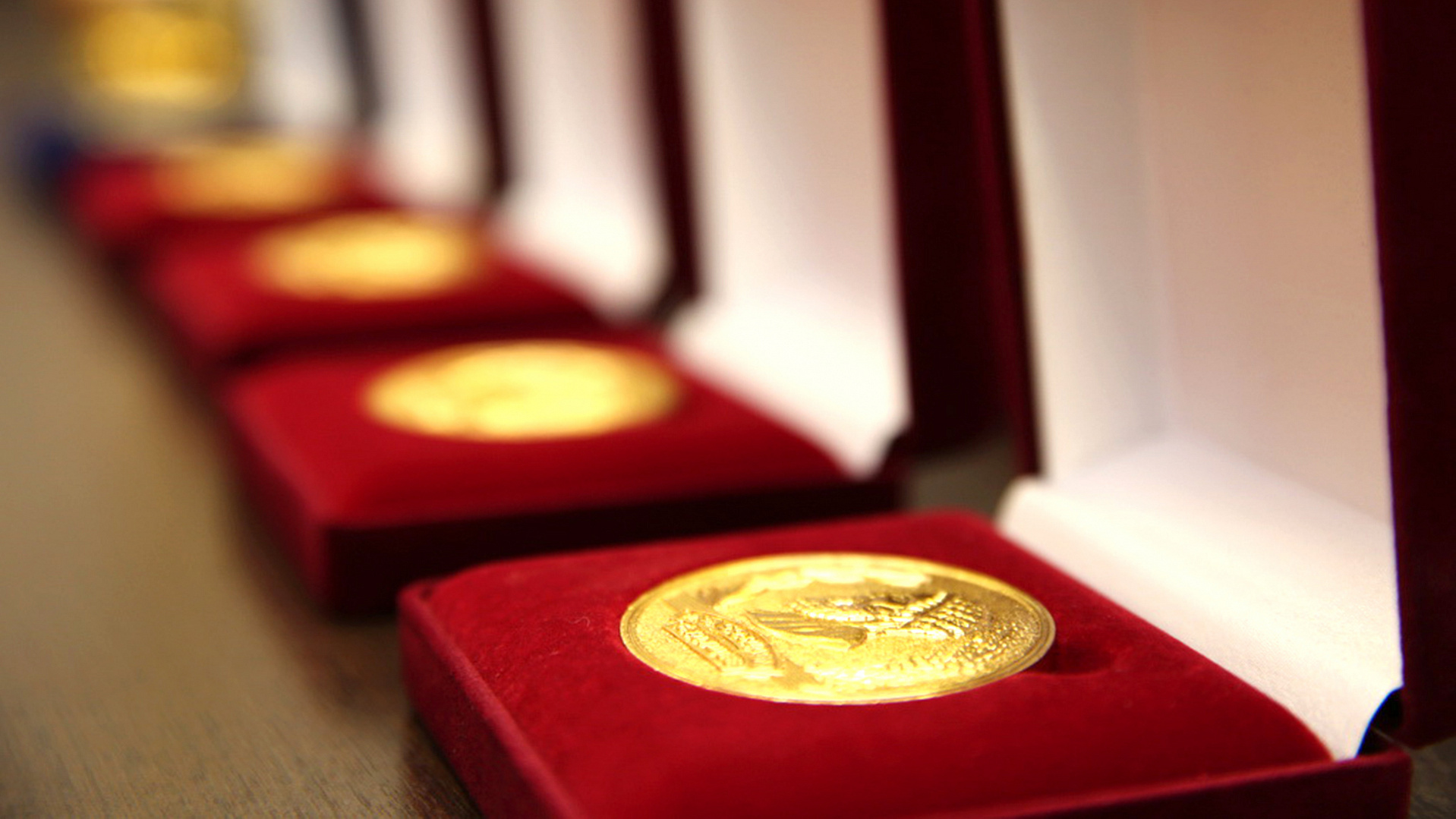RIPI GOLD AND BRONZE MEDALS AT “ARCHIMEDES-2020”

The gold and bronze medals were received by inventions presented by the RIPI employees at the 23rd Moscow International Salon of Inventions and Innovation Technologies “ARCHIMEDES-2020” held on March 24-27 in Moscow.
An invention capable of minimizing errors in the motion parameters during spacecraft searching, rendezvous and docking received the Salon’s Gold Medal. The technical result of introducing this invention will be the accurate level measurement improvement under re-reflection conditions and reliability improvement of the parameter measurement system of spacecraft relative motion.
Its creators, Vladimir Shaposhnikov and Sergey Medvedev, employees of the JSC RIPI:
- The idea of creating a model of the received spatiotemporal signals from objects of complex configuration in a matrix form such as the International Space Station (ISS) emerged during the initiative research work on measuring channels trial of promising MMS. It gives new possibilities of processing algorithms and signal selection development that substantially decrease the influence of re-reflections from structural elements during the spacecraft rendezvous and docking, as well as improve the accurate level measurement.
Vladimir Shaposhnikov:
- The essence of our invention consists in forming a model of spatiotemporal signals received by the MMS equipment in process of transport spacecraft rendezvous with a large orbital station ISS. The aggregate received signal consists of a direct useful signal and an arbitrary number of interfering reflections of different intensities. The model we propose does not require knowledge of the statistics of distribution of reflecting points of the object, their intensity, and allows synthesizing the weight function of signal processing, which significantly suppresses re-reflections.
The bronze medal of “ARCHIMEDES-2020” was given to the invention that guarantees a significant autonomy of systems providing thermal modes of active phased antenna array (APAA) of the new generation radar for the Earth remote sensing.
Vladimir Alekseev, Head of this Technical Solution Team:
- In case of repeated, but short-lived sessions of radar imaging of the Earth’s surface, heavy power consumption at the moment of the session and peak heat generation occurs while waiting for the next command. The task of RIPI engineers was to provide relatively stable temperature regime of APAA due to complex use of properties of passive means of thermal modes provision, deeply integrated into APAA design and electronic units. We applied thermal sotopanels and special thermoregulating coatings of microstrip radiators of APAA and surfaces of electronic units. A dielectric composite shape-resistant phase transition material with high latent heat of phase transformations is integrated into their design. In addition, heat-conducting structural elements were used to ensure the rigidity of the APAA structure.
RIPI Press Service